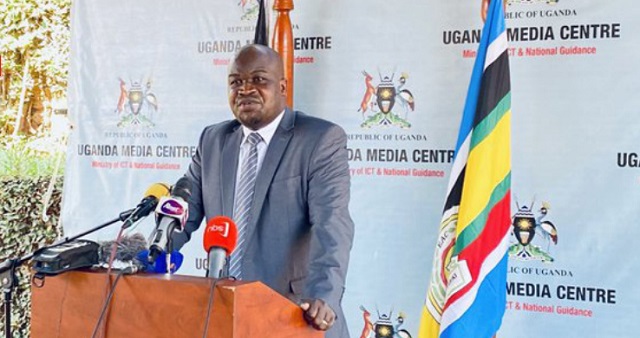
Move follows banning of more than 12,000 CSOs
Kampala, Uganda | RONALD MUSOKE | Civil society organisations have reacted with dissatisfaction at the government’s closure and suspension of 54 NGOs many of which work in the areas of transparency, accountability and governance across the country.
On Aug.20, the National Bureau for Non-Governmental Organisations (NGO Bureau), the government agency which registers, regulates, monitors, inspects, coordinates and oversees the activities of NGOs in Uganda said it had found the 54 NGOs non-compliant with the NGO Act 2016.
“The NGO Bureau has established that 32 NGOs are operating with expired permits contrary to Section 31 (1) and 32 (1) of the NGO Act 2016.”
Another 15 NGOs, the Bureau said, had failed to file annual returns and audited books of accounts to the NGO Bureau contrary to Section 39 (2) and (3) of the NGO Act 2016 while another 16 NGOs were said to be operating without registering with the NGO Bureau contrary to Section 29 (1), 31 (1) and 31 (2) of the NGO Act 2016.
“The NGO Bureau would like to inform the general public and all its stakeholders to take note of its decision against the affected organisations,” Stephen Okello, the executive director of the National Bureau of NGOs, said in a statement.
Okello issued the call to stakeholders across the country to help it in enforcing its decisions by ensuring that these affected organisations stop their operations with immediate effect.
Okello ordered the District NGO Monitoring Committees and Sub-County NGO Monitoring Committees to ensure that all NGOs and CBOs are compliant with the NGO Act, 2016 and NGO Regulations 2017 by allowing only those registered and with valid permits to operate in their districts.
But many civil society actors have not taken kindly to Okello’s decision to stop the activities of the NGOs.
Livingstone Sewanyana, the executive director of the Foundation for Human Rights Initiative told The Independent on Aug.20 that there is need to create a balance.
“As long as the law is in place, the NGOs are expected to comply but in doing so, the government agencies need to be flexible so as not constrain the activities of the NGOs,” Sewanyana said.
“It is basically an issue of compliance, “he told The Independent, “But my plea to the Uganda NGO Bureau is that it must let these NGOs rectify the mistakes and let them do their work as soon as possible.”
He says it is true there is a law governing NGO activities in Uganda and this means that they have to be compliant with the laws of Uganda.
“Among the requirements for an NGO to operate in Uganda is that it must be registered with the NGO Bureau, have a practicing certificate but also be able to regularly file its returns and books of accounts. So what the NGO appears to be doing is to enforce its role as a regulatory agency,” Sewanyana said.
Sewanyana also told The Independent that besides the NGOs having issues of capacity (some may not be able to file on time returns and their audited books of accounts); they are also dealing with a burdensome regulatory system. He says there are multiple complications the NGOs are dealing with.
They are expected to register with the Uganda NGO Bureau and Uganda Registration Services Bureau (URSB) but they are also expected to touch base with the Financial Intelligence Authority (FIA) to ensure financial compliance.
Continuation of clampdown
But, for Robert Kyagulanyi Ssentamu, the leader of Uganda’s biggest opposition political party, the National Unity Platform (NUP), this is nothing but a continuation of a clampdown on civil society work across the country.
In 2019, more than 12,000 civil society organisations were told they would no longer operate in Uganda following the government’s review of the number of officially registered NGOs in the country. Only 2,118 NGOs were allowed to continue with their activities. At the time, observers said the move was the beginning of a purge on NGO activities in the country.
Several of the other organisations whose operations have been halted or indefinitely suspended play key accountability roles in the human rights and civic education spheres.
For many years now, government has targeted these and other CSOs with threats of deregistration, freezing of their bank accounts, arrests, office raids and others.
In a statement posted on his Facebook wall, hours after the NGO Bureau ban of the 54 CSOs, Kyagulanyi said most of the organisations such as Chapter Four Uganda, the Great Lakes Institute for Strategic Studies (GLISS), the Citizens Coalition for Electoral Democracy (CCEDU) and the Citizens Election Watch-IT, among others, have been working to deepen constitutionalism, democracy, human rights and public accountability in Uganda.
“In the recent past, particularly during the 2021 electoral period, some of these organisations were raided by security agencies, and or their bank accounts arbitrarily frozen by the Financial Intelligence Authority.”
Kyagulanyi said Chapter Four’s Nicholas Opiyo who was doing work around the November shooting of over 100 unarmed citizens by security forces, was abducted and a slew of charges eventually slapped on him.
In the previous election cycle (2016 general election), NGOs including Action Aid International and GLISS suffered a similar fate when they were raided by the military who seized their property; especially communication devices.
The government also recently ordered the closure of the Democratic Governance Facility (DGF), Uganda’s biggest donor fund on false rumours that it was funding “subversive activities.
The DGF had been meeting a huge chunk of the budget of several government organs and agencies such as the Judiciary and the government owned newspaper, The New Vision, as well as hundreds of civil society organisations such as the African Centre for Treatment of Torture and Rehabilitation of Victims (ACTV) and the Anti-Corruption Coalition Uganda (ACCU).
Kyagulanyi said considering the work that the affected organizations have been involved in including that of defending the rights of the poor and underserved citizens, “it is quite evident that this latest crackdown on civil society is politically motivated”.
The regime considers as “anti-government” civil society’s work of checking the government’s excesses and influencing public policies. Apparently, this work is tantamount to colluding with the opposition,” Kyagulanyi said.

 The Independent Uganda: You get the Truth we Pay the Price
The Independent Uganda: You get the Truth we Pay the Price



